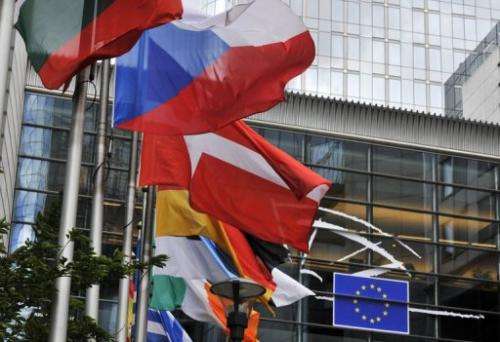EU to promise telecoms shake-up, end to roaming charges

The EU presents a radical shake-up of the telecoms sector Wednesday, aiming to enforce a single telecoms market and remove unpopular mobile phone roaming charges it claims are unjustified.
Commission President Jose Manuel Barroso will unveil the plans to the European Parliament in his last annual 'State of the Union' address before elections in May for a new executive and legislature.
EU Digital Agenda Commissioner Nellie Kroes has insisted for months that it is essential the EU act now or risk losing out on the economic benefits that a fully liberalised telecoms sector could offer in a single market of 500 million people.
Last month, a Kroes report showed that the cost of making mobile phone calls in the EU was like a lottery, with huge discrepancies across the 28 member states.
A call in Italy cost 6.9 euro cents to place, rising to 8.8 cents in the EU's biggest country, Germany, then 9.7 cents in Britain while France charged an average 12.7 cents and Spain 13.3 cents.
The average cost per minute for national mobile calls in 2011 varied from 1.9 euro cents (2.5 US cents) in Lithuania to 14.7 cents in The Netherlands.
"As these numbers clearly show, the 28 national telecoms markets in Europe today are not benefiting consumers like a single market" should, Kroes said, lamenting how far it was from being a "truly connected continent."
The long-anticipated reform package will accordingly range widely—regulation is likely to be simplified to set up a 'one-stop' shop for operators.

Connectivity will be improved by better coordination of access to frequencies, controlled by governments, so as to better develop next generation 4G services.
4G operates five times faster than the current 3G network and allows users to download large e-mail attachments quickly, watch live television without buffering, make high-quality video calls and play live games on the go.
It is seen as the next essential step in the telecommunications revolution and Kroes has repeatedly lambasted EU countries for lagging behind.
At the same time, the Internet will be maintained as a fully 'open system,' preventing operators from barring or limiting access to rival content.
In July, EU anti-trust officials launched probes of several firms suspected of abusing their positions in Internet services, including Orange, Deutsche Telekom and Telefonica.
The centrepiece Wednesday is expected to be plans to end roaming charges, the sometimes prohibitive extra costs incurred when customers use their mobile phones or portable devices while abroad.
Kroes has repeatedly railed against such charges and has pushed through considerable reductions but her plan to get rid of them in 2014 is countered by companies claiming they are crucial for profitability and so to their investment plans.
The Commission in response is set to phase out all roaming charges by 2016, pushing operators to offer better deals in the name of free competition.
To do this, it will put the emphasis on packages covering many countries, with the companies encouraged to form alliances on the lines of service-sharing tie-ups developed by airlines to cut costs and boost income.
A key option in the roaming charge campaign will be to allow clients to freely switch operators when abroad.
The Commission prefers this approach "because we know that the operators need time to adjust, to make the transition," said one source close to the issue.
At the same time, the goal remains to end roaming charges, a change which would boost the business overall by actually encouraging "customers to use their mobile phones when abroad," the source said.
A first step will see roaming charges on incoming mobile phone calls dropped in 2014 as the Commission girds up for the tough bargaining needed to go further.
© 2013 AFP





















